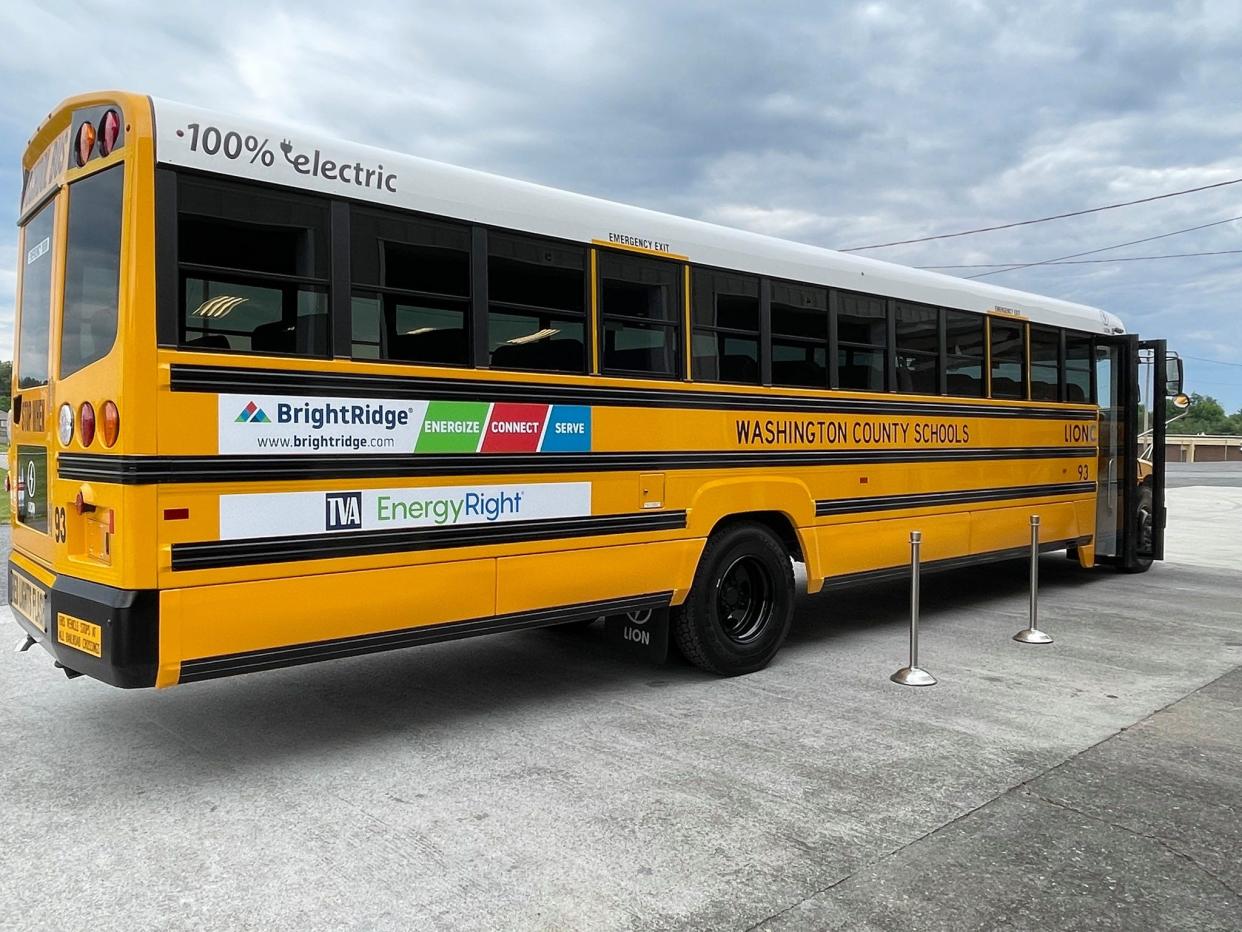It's electric. Dickson County Schools explore using 'clean' bus.

Dickson County Schools officials are looking at the possible use of an electric school bus, which administrators say would be free as part of a federal program.
The Dickson County School District was among several Tennessee districts on the U.S. Environmental Protection Agency’s “prioritized” list. A district can make the list by qualifying as “rural.”
Schools Director Dr. Danny Weeks talked about how the federal government continues to challenge school systems to transition to “clean” vehicles and the EPA program – part of the $1 trillion infrastructure law that passed Congress in November last year – is the latest step in that direction.
The Clean Bus Program provides $5 billion to school districts nationwide over the next five years to replace existing buses with zero-emission and low-emission models.
"We are exploring the option of electric school buses,” Weeks told the school board at its June 23 meeting. "We are exploring what routes or what events we can use an electric bus on."
Weeks said the transportation department is still in the exploratory phase, noting there are concerns. School Transportation Coordinator Melissa Garton also said Monday they were still trying to decide about their participation in the EPA program. The school district would have to apply for the grant and, despite being a priority district, Weeks said “there’s no guarantee” they would receive it.
Even though the district would own the bus "free of charge,” Weeks noted they are “extremely expensive." The cost for an electric school bus is about $375,000. Weeks said they expect normal school buses to cost up to $140,000 each this year.
Related: Electric vehicles surging in the South: How car sales, jobs, investments are driving momentum
Weeks said a bus requires about eight hours of charge time and with full power can travel about 125 miles.
"We understand there is a limited distance and limited charge on those buses,” Weeks said.
Also, Weeks said the electric buses are a little longer than a typical bus, thus possibly problematic on fitting inside the transportation department’s bay for any repairs.
The schools director said the electric bus he rode on was a smooth and “amazing” trip.
Dickson County Schools staff will tour the electric bus manufacturing facility in July.
“If it’s not going to be to our benefit, we are certainly not going to do it,” Weeks said. “But if we have an opportunity to get buses for free and can experiment with them and that’s where everything is headed — this is an opportunity to get ahead on that.”
Dickson Electric System has been talking with school officials about the infrastructure that would be necessary to support school buses.
This article originally appeared on Nashville Tennessean: Electric buses explored for Dickson County Schools

